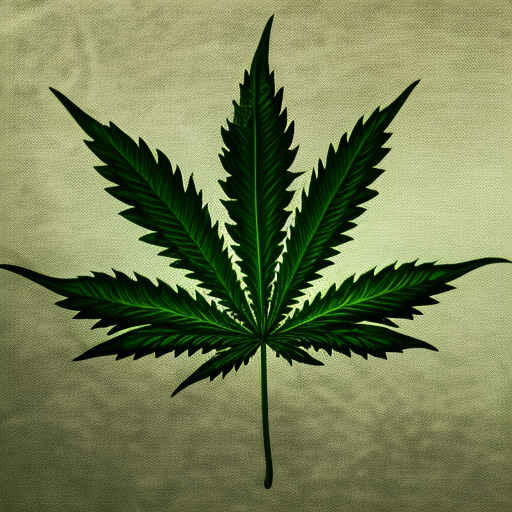
Marijuana and hemp are two of the most popular varieties of the cannabis plant, and each contain a variety of different cannabinoid compounds. Two of the most prominent cannabinoids found in cannabis plants are Delta-9 THC, the main psychoactive ingredient in marijuana, and Delta-8 THC, a minor cannabinoid that is gaining popularity for its potential therapeutic benefits.
As states continue to legalize medical and recreational marijuana use, more dispensaries are stocking their shelves with products containing these compounds. Consumers who may be considering trying products containing Delta-8 THC should first become familiar with the differences between this compound and Delta-9 THC and understand state regulations and safety concerns associated with it.
What is Delta-8 THC?
Delta-8 THC, also known as Delta-8 tetrahydrocannabinol, is a naturally occurring chemical compound found in cannabis plants alongside other cannabinoids like Delta-9 THC and CBD. This minor cannabinoid has a similar chemical composition to Delta-9 THC but produces a milder high with less negative side effects than traditional Delta-9 THC products.
The growing popularity of Delta-8 THC products have raised legitimate safety concerns related to variations in product formulations and labeling, along with other cannabinoid and terpene content that could potentially be unsafe for consumers.
What is Delta-9 THC?
Delta-9 THC is the primary active compound found in cannabis plants that produces an intoxicating feeling when consumed beyond a specific threshold. It is produced naturally in marijuana plants in high concentrations compared to other cannabinoids like Delta-8 THC, which only contains small traces.
In states where it is legal to use Delta-9 THC for recreational or medicinal purposes, consumers can purchase products containing this cannabinoid from marijuana dispensaries including cookies, gummies, vape cartridges, tinctures, edibles, topical lotions, candies, joints and infused beverages. Studies show that consuming Delta-9 THC could provide therapeutic benefits for certain conditions such as nausea and vomiting associated with chemotherapy, seizure disorders, chronic pain, spasticity associated with multiple sclerosis (MS), and sleep disorders in people with other chronic conditions.
CB Receptors & Delta-THC
Cannabinoids like Delta 8 and 9 THC interact with the body’s endocannabinoid system by activating CB1 receptors located within the brain and spinal cord along with CB2 receptors mainly located in the immune and digestive systems. Activation of these receptors helps to regulate pain, inflammation and improve sleep quality.
Research suggests that Delta-8 THC has a slightly weaker attachment to the CB1 receptor than traditional Delta-9 THC which results in a milder feeling compared to traditional marijuana products. Due to its milder psychoactive effects, many believe it may be helpful for symptom management without the harsh side effects associated with stronger substances like Delta-9 THC or CBD isolates.
Legal Restrictions & Safety Concerns
The 2018 Farm Bill passed federally legalizing hemp so long as it contained less than 0.3% Delta-9 THC content which unintentionally made Delta-8 THC legal as well since it was labeled as Delta-9 THC on the bill’s drafters made an oversight when labeling THC on the bill. This has allowed many producers of Delta-8 THC products to take advantage of gaps in state regulations or lack of understanding about these products while saturating markets across the nation.
It is important to note that not all states have specifically regulated the sale manufacture or distribution of Delta-8 THC so depending on your location it would be wise to check your state regulations before trying these products for medicinal purposes. Additionally due to synthetic extraction methods used for producing these products many consumers have expressed concern over potential contaminants or household chemicals used during production which could be unsafe for consumption if not monitored properly.
Consumers should also be aware that conventional urine drug tests often check for traces of Delta-9 THC, which could potentially result in an accidental positive if you have unknowingly consumed too much Delta-8 THC.
Benefits & Side Effects Of Using Delta-THC Products
Proper dosage management of a specific type may yield benefits such as improved sleep quality, calming of the immune or nervous system, reduced inflammation, increased appetite, pain relief, and prevention of sensory overstimulation. However, some users report experiencing negative effects from consuming too much, such as anxiety, panic, fear, loss of coordination and cognition, irrational thoughts, and hallucinogenic effects. It is important to note that everyone’s body responds differently to concentrated amounts of any type; thus it is recommended to consult a doctor before trying anything new.
Final Thoughts On Delta-THC Products
It has been suggested that Delta THC may have the potential to offer relief from symptoms associated with chronic pain or trauma-induced anxiety. However, it is imperative to be aware of the exploitation of state regulations and general lack of knowledge about these products, so thorough research should be conducted into one’s local state laws and only reputable sources should be purchased from prior to trying any product containing either Delta 8 or 9 THC. Furthermore, it is essential to understand dosage information and labels correctly, and a healthcare professional should be consulted in the event that any adverse reactions occur after taking any type of cannabinoid product.

